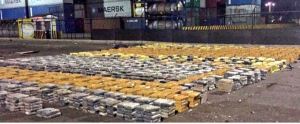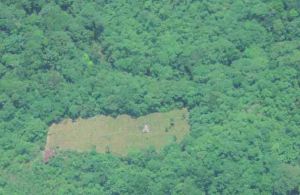nsnbc : The decriminalization of small coca farmes is part of the peace accord reached between the State and the now demobilized FARC-EP in December 2016. The administration of President Juan Manuel Santos reportedly plans to decriminalize cultivation of up to 3.8 hectares wile larger, industry-style cultivation – typically under the auspices of drug cartels – will remain criminal and will be prosecuted.
The decriminalization of smaller coca growers is one of the stipulations of the peace accord between the Revolutionary Armed Forces of Colombia – People’s Army (FARC-EP now the non-armed political party FARC) and the State that hasn’t yet been implemented.
The peace accord signed in December 2016 stipulates that farmers shall be offered participation in crop substitution programs. The agreement also stipulates that cultivating small coca fields shall be decriminalized.
According to data released by the United Nations the average coca plantation in Colombia is not larger than one hectare. The UN also estimates that some 100,000 Colombian families are living of coca cultivation. Consumption of coca leaves – like it or not – has been and continues to be a part of Colombian and Latin American culture, and so is – like it or not – in modern days – the limited recreational use of cocaine.
The agreement on illicit drugs – as part of the 2016 peace accord – was initially reached in talks between the FARC-EP and the Colombian government in the Cuban capital Havana in 2012. However, this part of the 2016 peace accord has not yet been brought before Congress.

Major drug bust in Colombia 2017 – This patch of cocaine was ready to be shipped to Spain. Most of such drugs come from industrial-scale coca cultivation.
The adoption of the bill by Congress would continue the trend initiated by the administration of President Juan Manuel Santos who repeatedly urged to re-think the so-called war on drugs. Santos stressed repeatedly that possession of small amounts of drugs should be decriminalized and that substance abuse, be it alcohol, cannabis or coca, is a public health and public order, and not a criminal issue.
Decriminalizing the cultivation of up tp 3.8 hectares, argues the administration of Juan Manuel Santos, would allow law-enforcement to focus resources on large-scale cultivation and drug cartels while law-enforcement would also avoid the embarrassment of having to crack down on over 100,000 families whose livelihood depends on small-scale, traditional coca cultivation.
Moreover, such a policy would also facilitate the building of a rapport between law-enforcement and rural communities and help promote cooperation in the fight against major, illegal drug cartels. The UN – generally for the criminalization of drugs – maintains that crop substitution would be the best way to make progress. However, the United Nations hard-line against the cultivation of drugs and their recreational use, introduced during the 1970s after considerable pressure from the USA, is increasingly come under fire as unfeasible, repressive, and counter-productive.
A/N -nsnbc 27.10.2017
Source Article from https://nsnbc.me/2017/10/27/colombian-government-plans-to-go-ahead-with-decriminalizing-small-coca-farms/
 RSS Feed
RSS Feed















 October 27th, 2017
October 27th, 2017  Awake Goy
Awake Goy 











 Posted in
Posted in  Tags:
Tags: 













